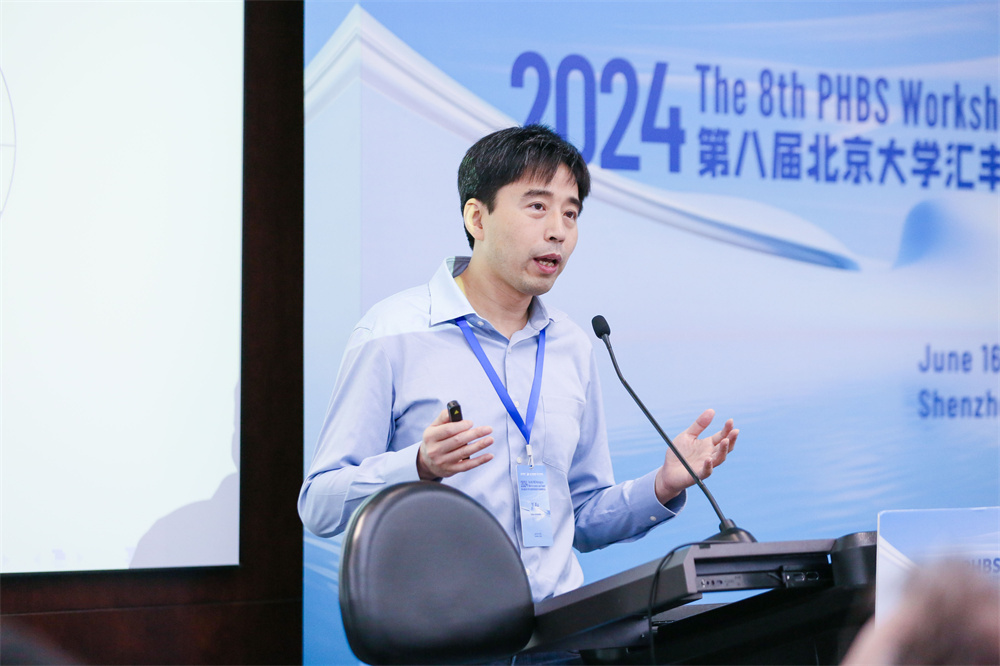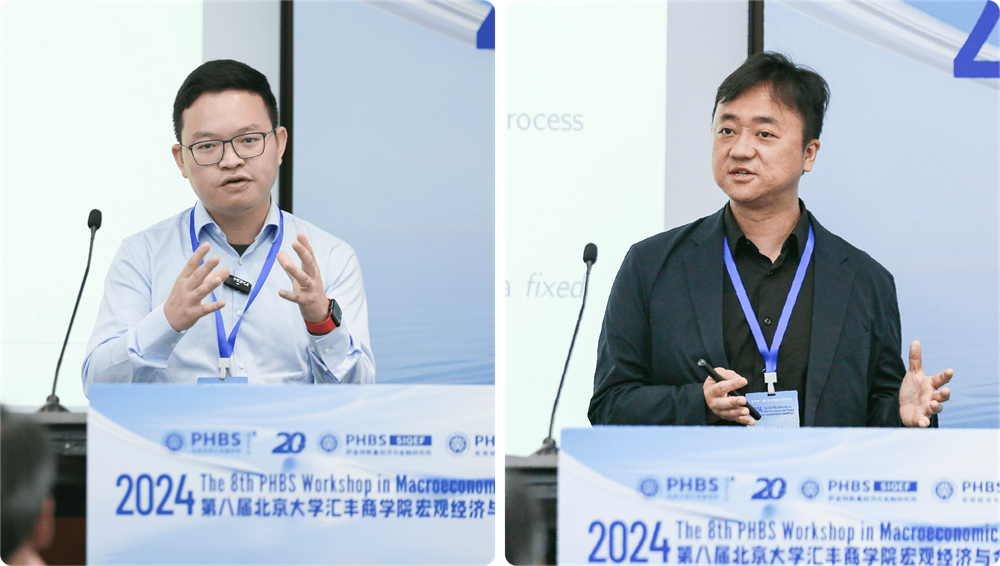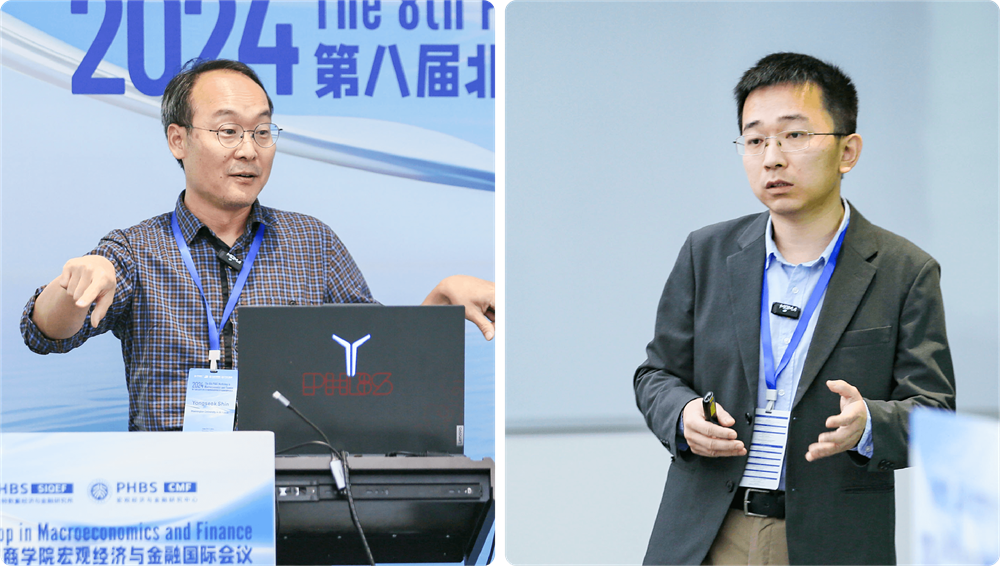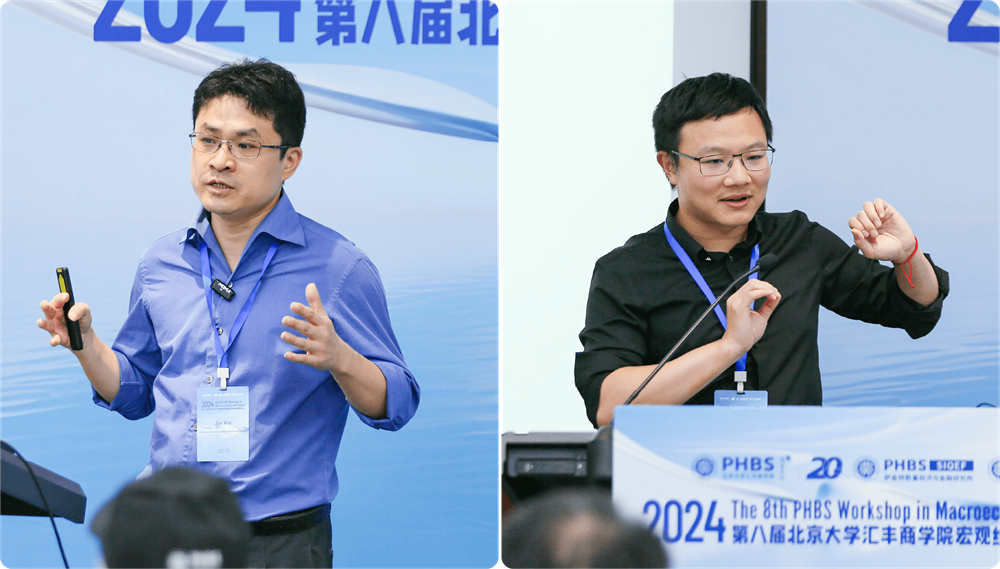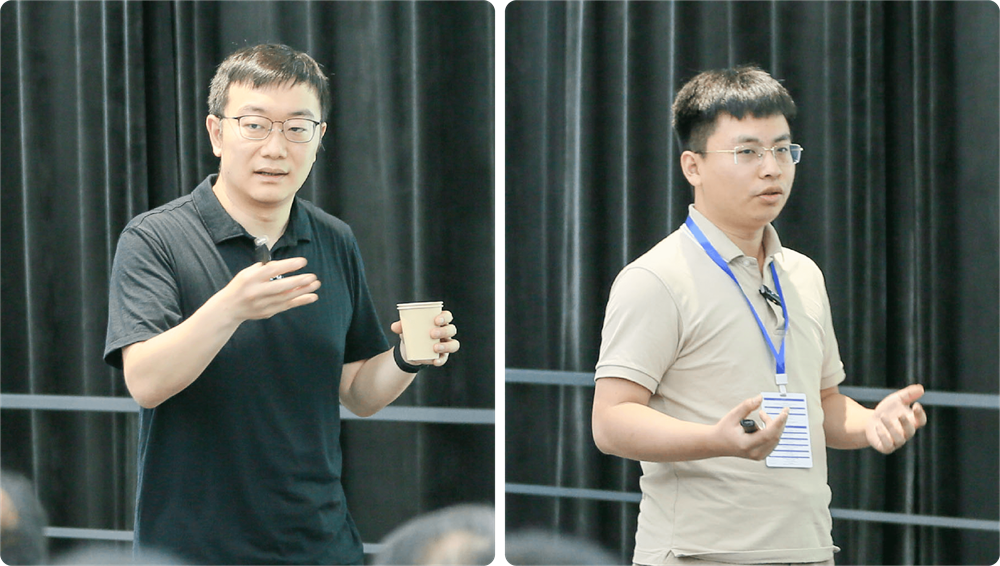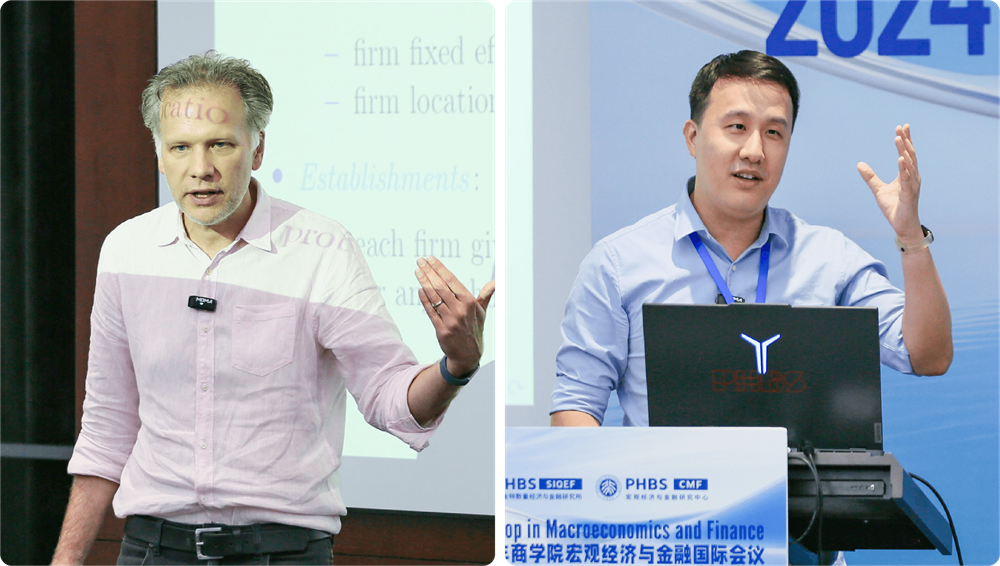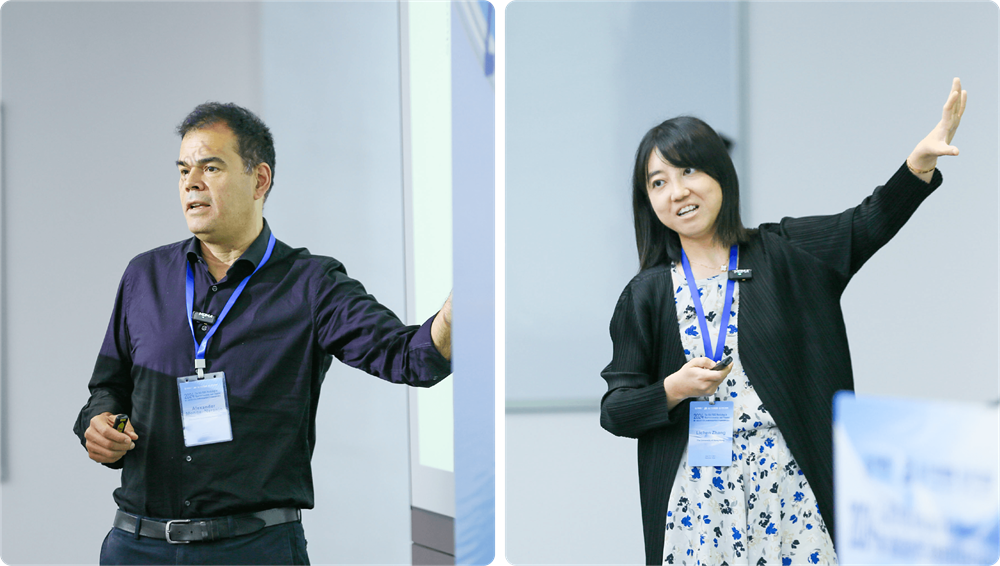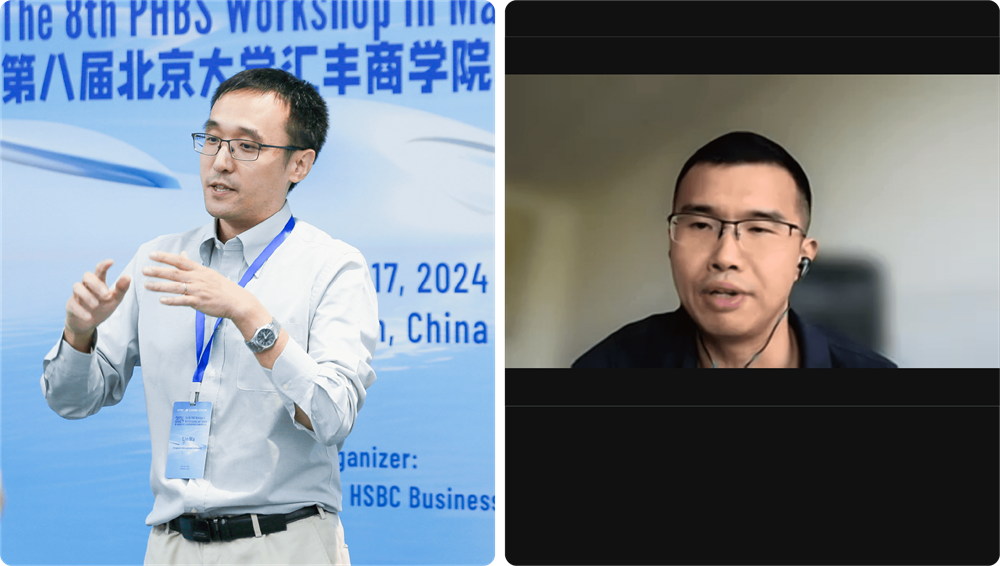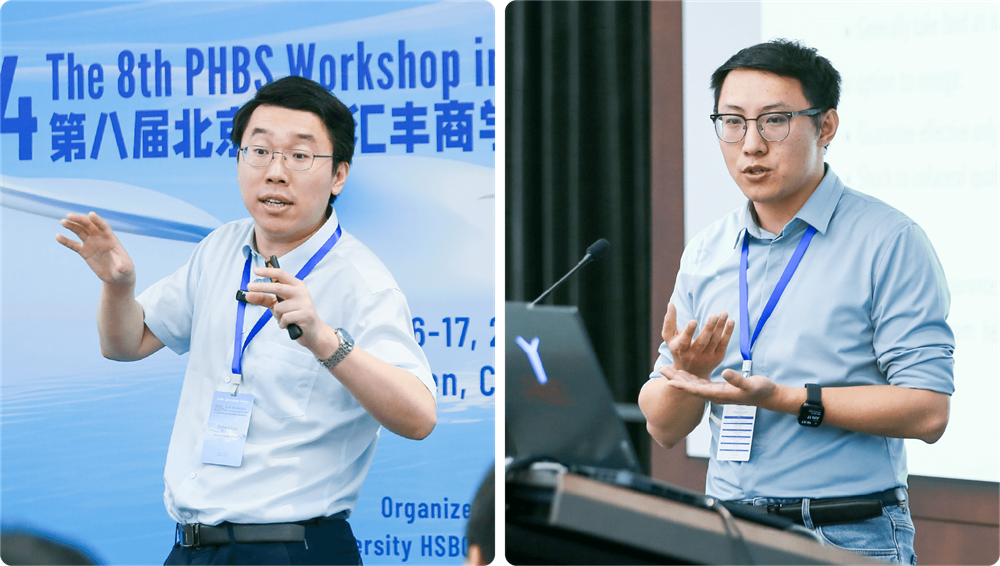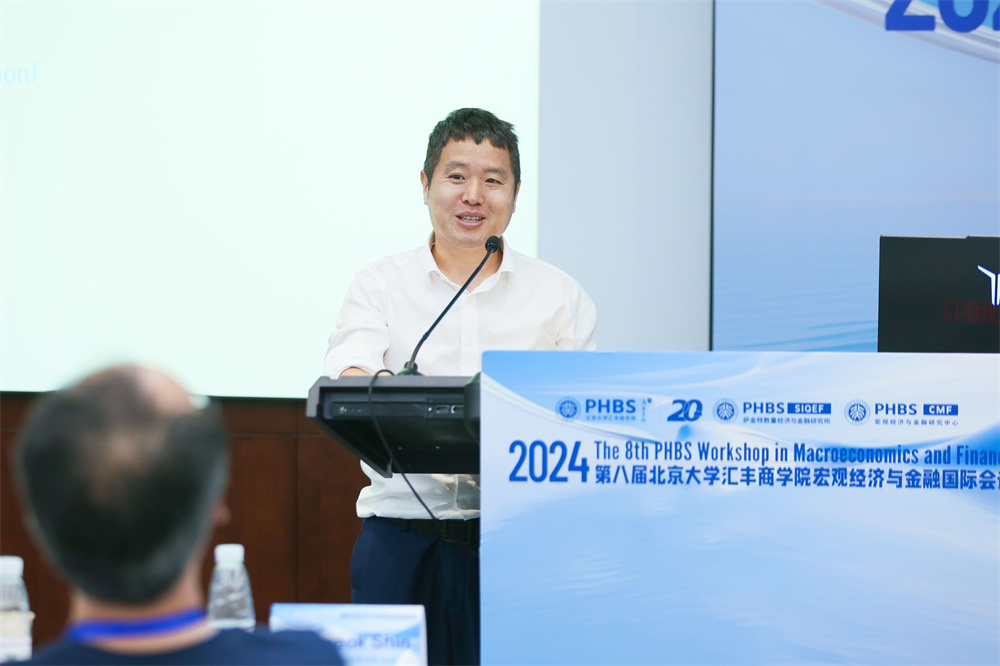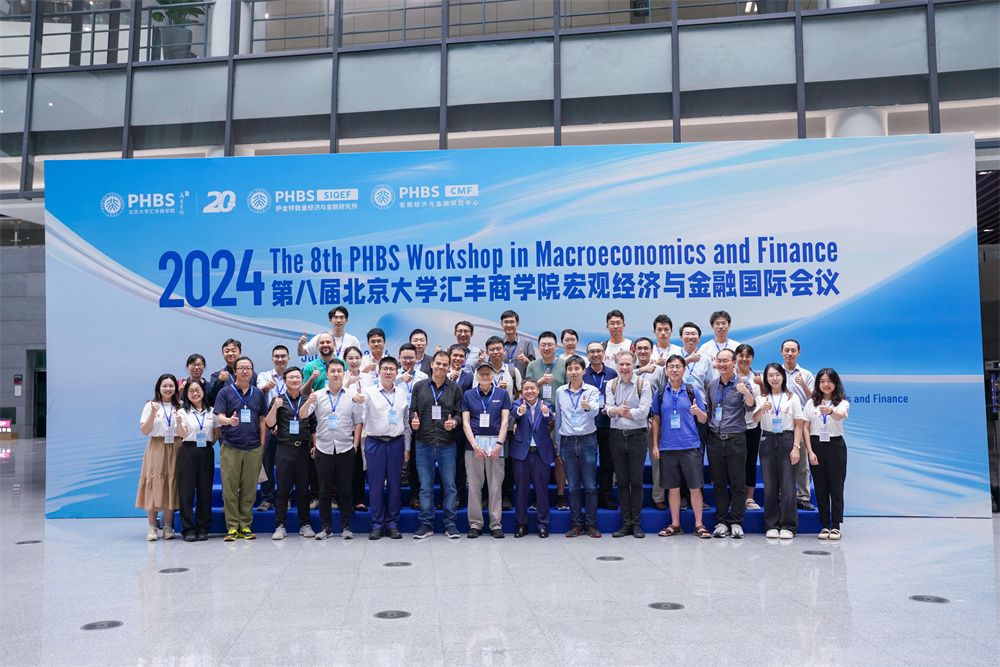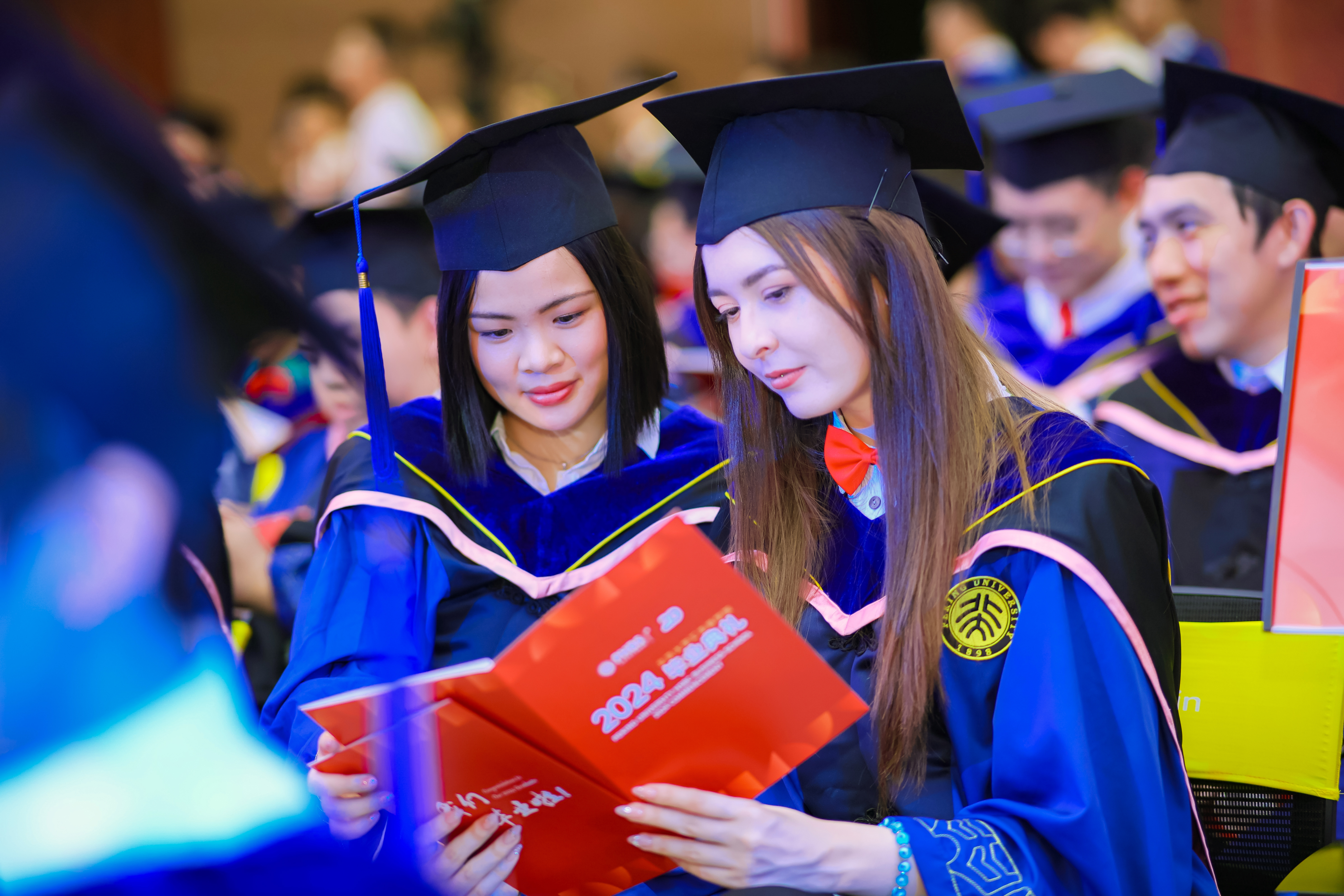The 8th PHBS International Workshop in Macroeconomics and Finance was held at Peking University HSBC Business School (PHBS) on June 16 to 17, 2024. More than 60 distinguished and emerging scholars in the field of macroeconomics and finance participated in the event to exchange their research findings and stay updated on the latest developments in the field. Among them were renowned scholars from Duke University, Princeton University, Boston University, Washington University in St. Louis, the University of Notre Dame, European University Institute, the University of Melbourne, National University of Singapore, Singapore Management University, The University of Hong Kong, The Chinese University of Hong Kong, Peking University, Tsinghua University, Renmin University of China, Shanghai Jiao Tong University, Shanghai University of Finance and Economics, and The Chinese University of Hong Kong, Shenzhen.
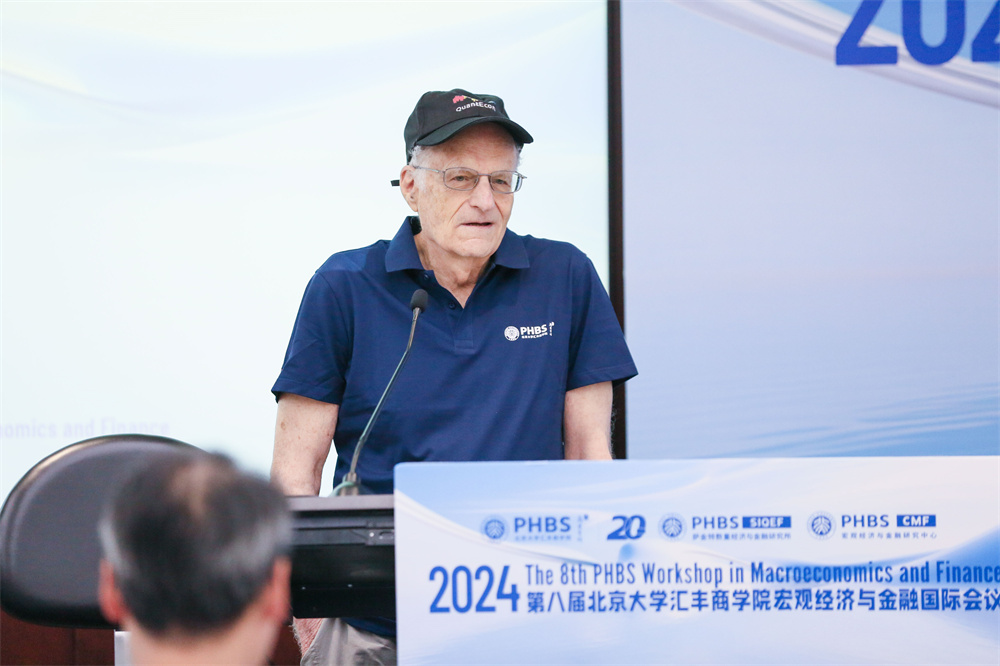
Thomas Sargent, Nobel laureate in economics and honorary director of Sargent Institute of Quantitative Economics and Finance (SIQEF) at PHBS
Professor Thomas Sargent delivered the opening remarks at the workshop, underscoring the dual nature of machine learning and ChatGPT advancements — both a groundbreaking opportunity and a significant challenge for macroeconomics. He expressed optimism, citing the collective expertise of the scholars in attendance, and asserted that while machine learning has the potential to achieve remarkable feats, the continued efforts of macroeconomists on the analysis of structural models are as important as ever. Professor Sargent eagerly anticipated the presentation of insightful papers that would further advance the field.
Professor Xu Yi from Duke University delivers a keynote speech
Professor Xu Yi shed light on his collaborative paper titled "Adverse Selection in Carbon Offset Markets: Evidence from the Clean Development Mechanism in China"(CDM). He argued that carbon offsets could address climate inequity and inefficient carbon regulation, but warned of the risk of adverse selection, or "additionality.” Using the panel data of CDM offset projects matched with Chinese firm and the staggered DID method, the study found that participation in CDM has led to reductions in CO2, although not as much as promised in initial projects' applications. To address endogeneity issues, the authors proposed a structural model that considered firms' investment decisions and separated emissions growth into scale and selection effects. The paper concluded that although they found evidence of adverse selection taking place in CDM, the UN's internal screening of potential non-additional projects has contributed to a relatively high institutionalss efficiency. The authors proposed exploring alternative registration criteria using richer data to improve the per dollar “additional” emission reduction.
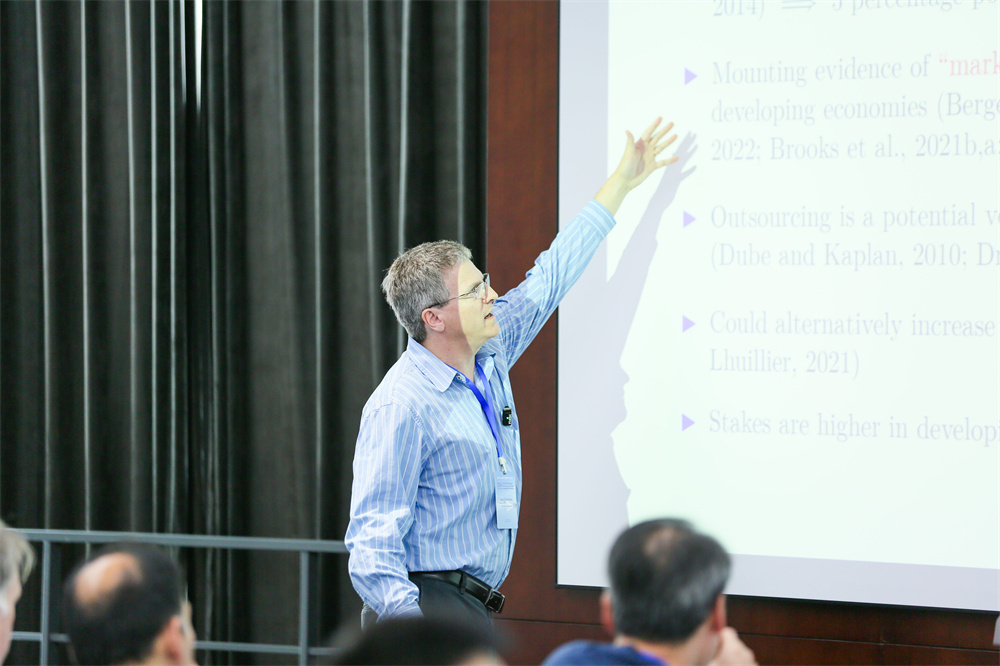
Professor Joseph Kaboski from Notre Dame University delivers a keynote speech
Professor Joseph Kaboski delivered a keynote speech on his co-authored paper "Outsourcing Policy and Worker Outcomes: Causal Evidence from a Mexican Ban". Using confidential Mexican economic census data from 1994 to 2019, as well as the manufacturing panel survey data from 2013 to 2023 and the natural experiment of Mexico's domestic outsourcing ban in 2021, the author investigated the effects of the outsourcing ban on wages, output, and employment. The research showed that the outsourcing firms evaded taxes and underpaid their employees, a term authors called “wage discounts”. The outsourcing ban implemented by Mexican government has increased workers' wages, did not decrease firm output or employment, but led to reductions in capital investment and to increased market exit. Consistent with the existence of monopoly power, the largest companies had largest wage discounts, and the reduction in discounts was mainly concentrated in companies with high discounts.
Zhang Donghai and Jia Dun
Assistant Professor Zhang Donghai from the National University of Singapore introduced his co-authored paper titled "Lumpy R&D and the Great Twins: The Great Moderation and Great Recession." The paper found that the share of firms with R&D spikes' is pro-cyclical and could account for 75% of the aggregate R&D pro-cyclicality. This finding motivated authors to study the relationship between heterogeneous innovative firms and lumpy R&D investment under fixed adjustment costs by utilizing firm-level data and a medium-run business cycle model, givin rise to a novel "Great Twins" hypothesis. PHBS Assistant Professor Jia Dun commented on the paper, discussing ideas' persistence, physical capital adjustments, innovation's wealth effects, and the Great Twins' role, along with financial frictions.
Yongseok Shin and Xu Sichuang
Professor Yongseok Shin from the Washington University in St. Louis presented the collaborative paper titled "Is Software Eating the World?" The paper examined the steady decline in labor income share in most advanced economies since the 1980s, which could be attributed to capital-labor substitution, intangible capital, and reallocation. Using the data of Korean firms, the study highlighted the rise of software as a common thread, revealing that software substitution for labor could explain over 60% of the labor share decline. Assistant Professor Xu Sichuang from the Chinese University of Hong Kong, Shenzhen discussed topics such as the introduction of software capital in the model, production equipment and ICT equipment (hardware), software purchase versus internal development, and extensive margin.
Xie Jin and Luo Dan
PHBS Assistant Professor Xie Jin presented the paper titled “Nominal Rigidities, Earnings Manipulation, and Securities Regulation.” Motivated by quasi-experimental evidence from the US, he argued in a new keynesian model with financial accelerator that managers of sticky-price firms have incentives to manipulate profits. Using PPI microdata from 2002-2012, results showed sticky-price firms would be more prone to misreporting and sensitive to punishment, increasing auditing costs and loan spreads. Assistant Professor Luo Dan from the Chinese University of Hong Kong pointed out that Bayesian models rely heavily on strong assumptions about commitments, and it may be a better choice to use more natural models to formulate hypotheses.
Ernest Liu and Xu Le
Assistant Professor Ernest Liu from Princeton University presented a collaborative paper titled "Neoclassical Growth in an Interdependent World," which explored a more generalized framework of an open economy across nations by incorporating trade and capital market frictions as well as imperfect substitutability between goods and capital. Assistant Professor Xu Le from Shanghai Jiao Tong University pointed out that further discussion could be needed on whether exchange rate adjustments would mitigate or exacerbate the impact of market frictions on convergence.
Chris Edmond and Jake Zhao
Professor Chris Edmond from the University of Melbourne presented the paper "Local Concentration, National Concentration, and the Spatial Distribution of Markups," which explored the national and local market concentration and its impact on market competition and markups. Jake Zhao, a tenured associate professor at PHBS, suggested that the model should incorporate more detailed data to enhance its explanatory power and proposed fruitful directions for future extensions.
Alexander Monge-Naranjo and Zhang Lichen
Professor Alexander Monge-Naranjo from the European University Institute presented the paper titled "Alumni as Assets: Legacy Preferences, Expected Donations, and Selective Admissions in Elite Colleges," which explored a dynamic model of alumni preferences and donations in elite universities. Assistant Professor Zhang Lichen from the University of Hong Kong suggested that the model could further investigate the impact of talent mismatch resulting from alumni preferences and how these preferences hinder high-ability non-alumni students from gaining access to elite education opportunities.
Ma Lin and Xu Mingzhi
Assistant Professor Ma Lin from the School of Economics, Singapore Management University, presented the paper titled "Educational Migration." The article established a general equilibrium dynamic spatial model that incorporates lifecycle factors to analyze the impact of educational resources. Assistant Professor Xu Mingzhi from the Institute for New Structural Economics, Peking University, discussed issues such as the inconsistencies between individual migration and teacher resource migration, the relationship between inequality and welfare, and the measurement of educational quality.
Liu Zehao and Su Dongling
Associate Professor Liu Zehao from the School of Finance, Renmin University of China presented the paper "Borrowing like China? A Theory of Guarantee Multipliers." His paper developed a model analyzing collateralized lending and private information to rationalize this, shedding light on the prevalence of such guarantees in China and loan guarantee programs in advanced economies. Assistant Professor Su Dongling from the School of Business, Shanghai University of Finance and Economics discussed potential extensions of the paper in terms of government fiscal capacity, land finance, and land banking.
Professor Wang Pengfei delivers closing remarks
At the closing ceremony, Professor Wang Pengfei, dean of PHBS and executive director of SIQEF, expressed his gratitude to Professor Sargent and all the scholars in attendance on behalf of the organizers, and introduced the school's recent academic achievements. He pointed out that this year marked the 20th anniversary of the school's establishment, which was a milestone symbolizing two decades of dedication, innovation, and development. "He aspired for the school's research to leap forward, maintaining its leading position in macroeconomics, financial innovation, and education, thereby contributing to the global economy.
The group photo of the participants
Since its inception in 2018, the PHBS Workshop in Macroeconomics and Finance has served as a powerful platform for eminent scholars and emerging young researchers to exchange ideas, deepen their understanding of China's macroeconomic and financial challenges, and translate research insights into practical contributions to China's reform and development. In addition, this workshop not only highlights PHBS's dedication to becoming a world-class academic institution, but also lays a solid foundation for future collaborations between PHBS and distinguished scholars both domestically and internationally, thus strengthening the academic community in this crucial field.
Source: Sargent Institute of Quantitative Economics and Finance and Public Relations &Media Office
Written by: Annie Jin, Yang Zijun, Shu Danyi, Zhang Jiayu, Zhao Shijie, and Sun Bo
Images: Youmi, Liu Haizhen






